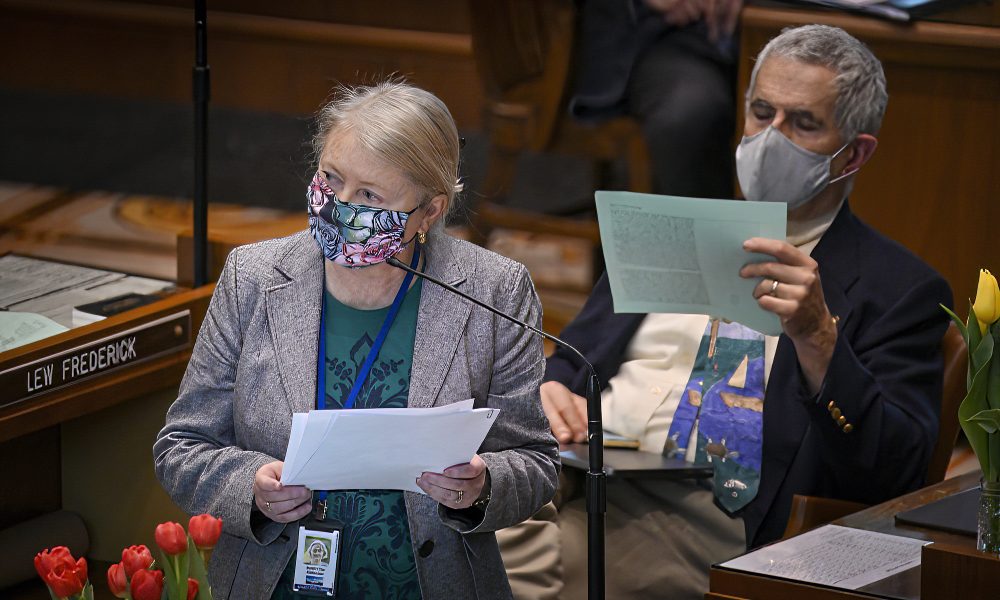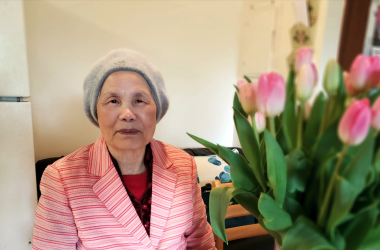Recently released data on homeless Oregonians who died this year shows a need for more detailed reporting and more resources, the state senator who requested the data told the Capital Chronicle.
A 2021 law crafted by Sen. Deb Patterson, D-Salem, requires the state to keep records on people who died without a fixed address, listing their address as “domicile unknown” on death records. An initial report released by the Oregon Health Authority last month showed that 207 people without homes died in Oregon between January and June.
Patterson said she knew that homeless people were dying before receiving services – that’s why she wrote the law. But seeing proof that hundreds of Oregonians have died on the streets each year was still shocking, she said.
“It was a shocking number to see it in print,” she said. “And it doesn’t even include all of June’s data, so it’s not even half a year.”
And the actual number may be even larger, she acknowledged. True estimates of a state’s homeless population are hard to capture, as people ashamed of not having a home may provide their last known address or a loved one’s address instead of telling authorities that they’re homeless.
More than 80% of the Oregonians who died without homes were overwhelmingly white (170 of the 207), nearly 80% were male (165) and 65% were middle-aged: 69 of the people who died were between 55 and 64, while another 43 were between 45 and 54 years old and 33 were between 65 and 74 years old. Only one child died without shelter, according to the Oregon Health Authority.
But while the majority of the deaths were among white people, people of color – particularly indigenous people – were overrepresented compared with their numbers in the general population. Thirteen of the 207 people who died were identified as American Indians or Alaskan Natives, but they represented 28 deaths in a population of 100,000. For white decedents, that rate was 5.1 deaths per 100,000 population.
Patterson said those statistics show the need to work with Oregon’s tribes to prevent homelessness and get resources to people who lack homes. She has talked with tribal members about the epidemic of missing and murdered indigenous women, she said, but they also need to look at men.
“There is a great deal of systemic inequality that we need to look at, and we need their voices to help us understand,” she said.
More than one-third of the deaths were in the Portland area, but every region of the state was affected.
The health authority listed natural causes as being responsible for 154 of the deaths, and Patterson said she wants more clarity on what that means.
“What are natural causes when you’re laying on the street?” she asked. “Does it mean untreated diabetes? Does it mean anybody would die if it was freezing outside? We need more information.”
Patterson said she hopes this year’s numbers are unusually high because of complications from the pandemic and that they’ll decrease as the state makes more resources available. For instance, she said, Northwest Human Services in Salem tries to keep track of people and help them keep appointments for medical care.
“That was much harder during the pandemic, but they’re playing catch-up ball so I’m hoping as we catch up, and as we get people housed that these numbers will go down,” Patterson said.
The $400 million the Legislature provided this year for housing and homeless services should help, Patterson said. The money includes about $50 million more for Project Turnkey, approved in 2020 with nearly $77 million for nonprofits to buy motels and turn them into transitional housing.
Patterson’s home city of Salem received $7 million to open a navigation center within the next few months to direct people to services, as well as money to expand shelter space.
Oregon Capital Chronicle is part of States Newsroom, a network of news bureaus supported by grants and a coalition of donors as a 501c(3) public charity. Oregon Capital Chronicle maintains editorial independence. Contact Editor Lynne Terry for questions: [email protected]. Follow Oregon Capital Chronicle on Facebook and Twitter.
STORY TIP OR IDEA? Send an email to Salem Reporter’s news team: [email protected].

Julia Shumway is deputy editor of Oregon Capital Chronicle and has reported on government and politics in Iowa and Nebraska, spent time at the Bend Bulletin and most recently was a legislative reporter for the Arizona Capitol Times in Phoenix. An award-winning journalist, Julia most recently reported on the tangled efforts to audit the presidential results in Arizona.









